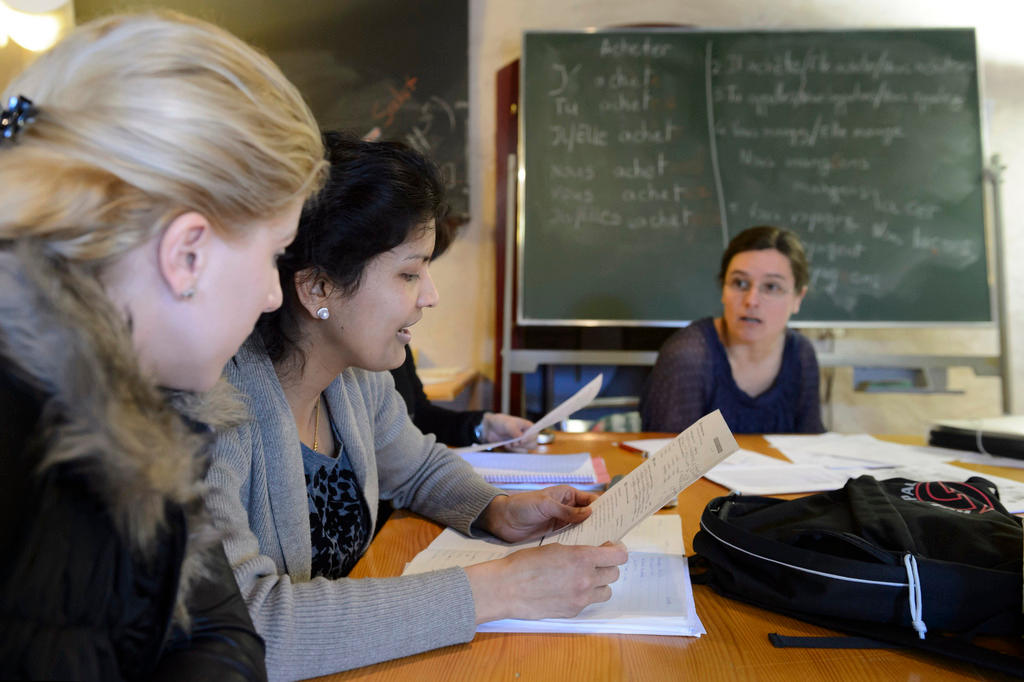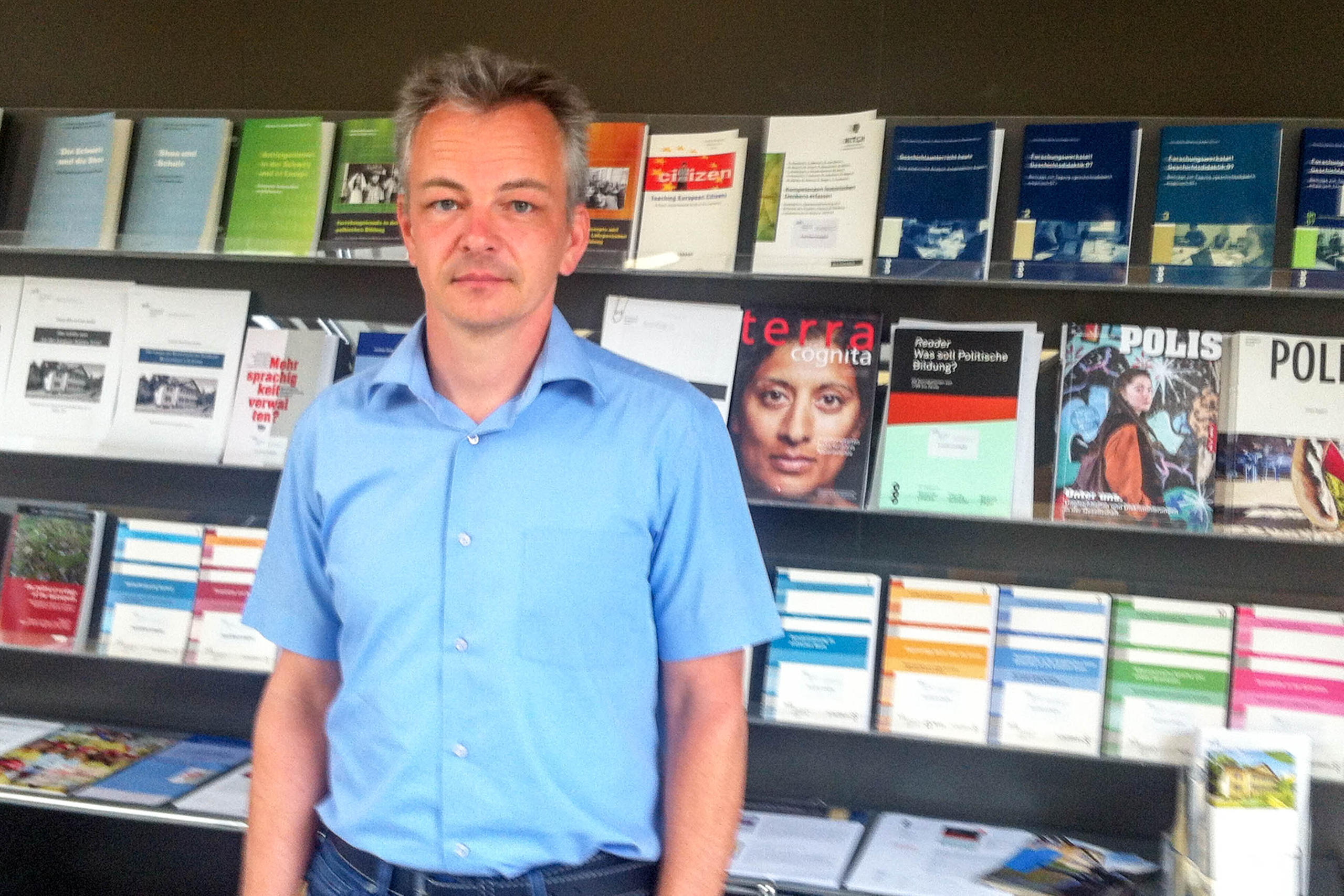
Shedding light on populism, media in direct democracy

What impact do globalisation, the media and populism have on the quality of democracy? A major research project involving around 50 Swiss science teams have been trying to find answers.
One of the main results of their 12 years of multi-disciplinary research is the development of a Democracy BarometerExternal link, an online tool which allows comparisons of the quality of established democracies based on more than 100 different indicators.
Using the barometer, the Centre for Democracy Studies in AarauExternal link plans to monitor the state of democracies worldwide in regular two-year intervals.
“A lot of resources went into building, testing and re-calibrating the tool,” says Daniel Kübler, who has led the research, known as the NCCR Democracy Project, over the past five years. Rooted in empirical data, the barometer is easily accessible to the public and not just to scientists.

“People can go to our website, play around with the data and have the findings presented as rankings, spiders and other ways,” Kübler points out.
The barometer is one of several tools that can be used for civic education courses in school. There are also simulation games allowing students to play legislator in SwitzerlandExternal link, a similar concept to Model United NationsExternal link.
“The parliament simulation game is a highlight for me, because its shows how civic education can benefit directly from scientific work and help improve people’s knowledge about politics and democracy,” says Kübler.
The NCCR Democracy Project also had a sort of scientific breakthrough when its researchers developed an empirical measurement of the populist character of political communication, whether in newspaper articles, press releases and in people’s attitudes.
Kübler is convinced that tool will have “a major impact” and will “be widely cited”.
Communication
But Kübler says it was not always easy to ensure that all scientists involved in the research could find a common language. Ensuring that political and the communications scientists understood each other and the methods used took time and slowed down the process.
For example, says the head researcher, the communications scientists hadn’t considered the issue of populism before but were eventually able to develop a tool to measure the phenomenon thanks to collaborations with their political counterparts.
“It was a real challenge, but the effort paid off and we benefited from the fact that we had funding for 12 years,” Kübler says.
However, the huge number of people involved from several Swiss universities did not pose a problem because, Kübler says, the project leaders are “all excellent scholars and the scientists who are used to working independently and are highly motivated”.
This text is part of #DearDemocracy, a platform on direct democracy issues, by swissinfo.ch.
As a director and coordinator, his task was to see that the project didn’t veer off course and that the team remained focused on the core questions of globalisation and the media.
Several PhD students were able to complete their studies as part of the project.
“It helped boost the standing of political and communications science in Switzerland at an international level,” Kübler says. “The success of young scientists shows that the NCCR Democracy project has achieved its goals.”
Mining data
The research programme also raised several new question. For example, what safeguards can be put in place safeguards to prevent damage to democracy from populism? Or, what do populist politicians do when they are in government?
Such questions will be explored through an new six-year project that will focus on direct democracy in EuropeanExternal link populism at the Centre for Democracy Studies, which is a research arm of Zurich University.
Nadja Braun BinderExternal link, an expert in administrative law, has been appointed as one of two new professors leading the project.
NCCR Democracy
More than 50 research teams at 16 Swiss institutions focused on globalisation and the role of the media in the context of increasing populism.
The CHF33 million ($34 million) project, funded by the Swiss National Science Foundation, was led by political scientists Hanspeter Kriesi (European University Institute in Florence, Italy), and Daniel Kübler from Zurich University.
The multidisciplinary research project on democracy in the 21st century officially ends on September 30.
The main findings of the project were presented at a scientific conference in JuneExternal link.

In compliance with the JTI standards
More: SWI swissinfo.ch certified by the Journalism Trust Initiative
















![The four-metre-long painting "Sonntag der Bergbauern" [Sunday of the Mountain Farmers, 1923-24/26] had to be removed by a crane from the German Chancellery in Berlin for the exhibition in Bern.](https://www.swissinfo.ch/content/wp-content/uploads/sites/13/2025/12/01_Pressebild_KirchnerxKirchner.jpg?ver=917ecbf2)















You can find an overview of ongoing debates with our journalists here . Please join us!
If you want to start a conversation about a topic raised in this article or want to report factual errors, email us at english@swissinfo.ch.